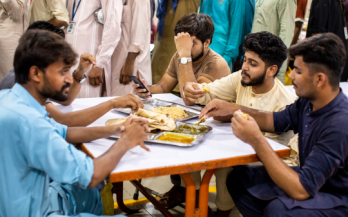

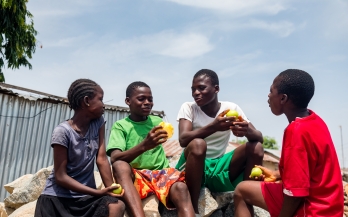
World Health Day
- , Global
Healthy beginnings, Hopeful futures World Health Day, celebrated on 7 April 2025, will kick off a year-long campaign on maternal and newborn health. The campaign, titled Healthy beginnings, hopeful futures, will urge governments and the health community to ramp up efforts to end preventable maternal and newborn deaths, and to prioritize women’s longer-term health and well-being. WHO and partners will also share useful information to support healthy pregnancies and births, and better postnatal health. Stay tuned for GAIN’s contributions to World Health Day 2025.
78th World Health Assembly (WHA)
- Geneva, Global
The 78th World Health Assembly (WHA) will be held in Geneva, Switzerland from Monday, May 19, 2025 to Tuesday, May 27, 2025. Watch out for GAIN’s participation at WHA 78 as we push for stronger food systems and healthier communities.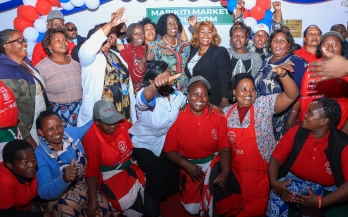
Preserving Food and Profits in Kenya: Marikiti Cool Room Commissioned to Empower Traders and Reduce Food Waste
On 15th January 2025, the bustling town of Machakos in the lower eastern part of Kenya witnessed a transformative milestone in food systems in Kenya; the commissioning of the Marikiti Market Cool Room. This state-of-the-art facility was officially handed over by the Global Alliance for Improved Nutrition (GAIN) to the County Government of Machakos in an event graced by H.E. Governor Wavinya Ndeti and GAIN Kenya Country Director, Ms. Ruth Okowa.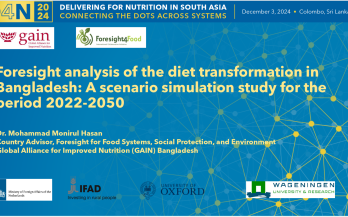
Foresight analysis of diet transformation in Bangladesh_A scenario simulation study
Foresight analysis of diet transformation in Bangladesh_A scenario simulation study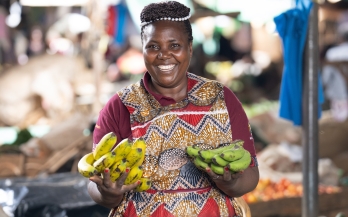
GAIN MOZAMBIQUE’S PORTFOLIO
To address the triple burden on Mozambican’s Food system, GAIN in Mozambique is focused on innovative, scalable, and impactful initiatives aimed at identifying, updating, and disseminating legislation; developing businesses that produce and distribute safe and nutritious food; and implementing approaches to increase the demand and consumption of healthier diets by all Mozambicans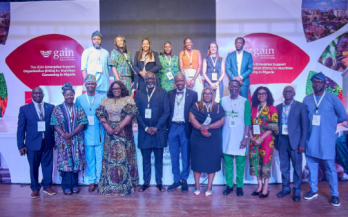
Enterprise Support Organisations For Nutrition -GAIN Convening Paper n°11
On August 29, 2024, the Global Alliance for Improved Nutrition (GAIN) hosted the inaugural Enterprise Support Organisation (ESO) for Nutrition Convening in Nigeria, themed ‘Catalysing Nutritional Innovation: Empowering ESOs to Transform Food Systems.’ This first-of-its-kind convening in Africa brought together over 150 participants, including key stakeholders from academia, the private and public sectors, development agencies, and civil society. The convening focused on the critical role ESOs (entities that provide business development services to businesses) play in transforming food systems by supporting agri-food small and medium-sized enterprises (SMEs) to overcome operational challenges, enhance capacity, and improve nutrition outcomes for underserved populations.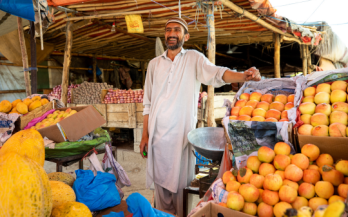
Improving Access to Finance for Small and Medium-Sized Food Enterprises for a Better-Nourished Pakistan
Pakistan’s many small- and medium-sized enterprises (SMEs), including the large number involved in (nutritious) food supply, are held back by lack of access to adequate finance. Actions could be taken by government, private banks, and other finance providers to help resolve this critical capacity constraint.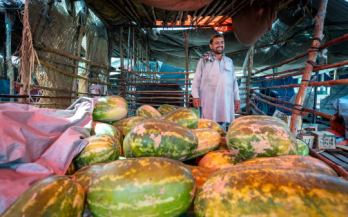
Addressing Market Constraints Faced by Small and Medium-Sized Food
In the context of the latest national SME policy “2021 SME Policy Pakistan”, and findings from a recent in-country survey executed by Entrepreneurship Development and Advisory Services (EDAS) and supported by GAIN, this brief, focuses on constraints in the market from supply- and demand perspectives facing SMEs. Its two sister briefs have been prepared using the most up-to-date research (conducted over the last 5 years) on ongoing issues faced by Pakistani SMEs, particularly food-related SMEs, to develop policy recommendations.